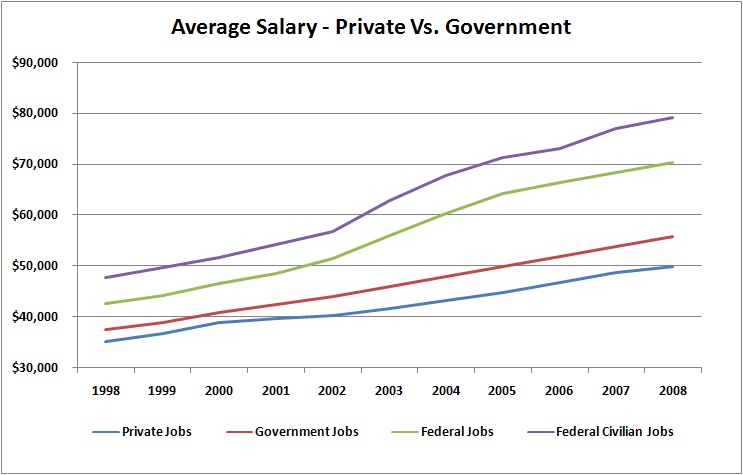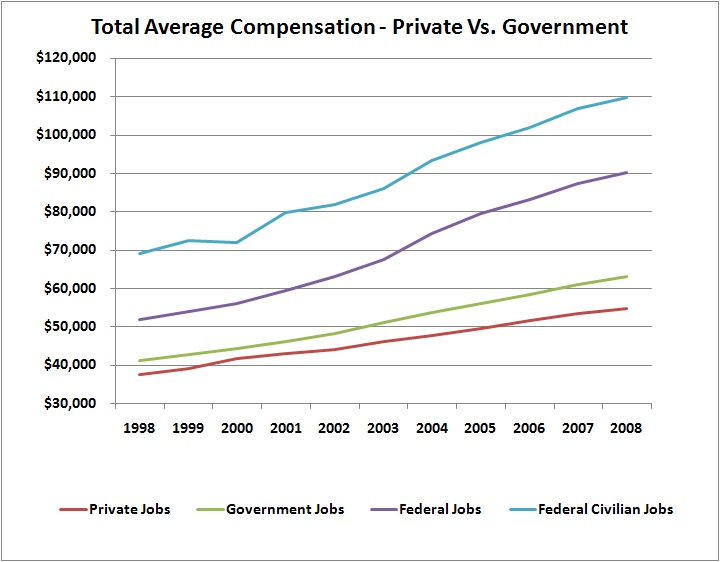As we look at the efficacy of government programs in general, I think it is important to take a step back and look at the government as a corporation. The government can be viewed as an all powerful monopoly that has control over its own income, something that every other corporation operating in a competitive industry should be envious of. The government is an organization like many others and therefore requires many of the same mundane positions: secretaries, accountants, financial analysts, project managers and other paper pushers. That being said, there are definite differences between government positions and private positions so it is difficult to tease out true apple to apple comparisons. For instance, there might be quite a few cafeteria workers in government jobs but not nearly as many as in the private restaurant businesses. Such a percentage difference can overstate average government salaries because there are not as many low salaries dragging the average down. Likewise, there might be more college educated jobs in government spots versus the private sector, though I would argue that this difference should have decreased dramatically as the US economy has become more driven by intellectual property and less by manufacturing. With all of these caveats in place, let us dig into the numbers:
These two charts bring two very important questions to my mind:
- How much more valuable is an equally skilled government (particularly federal) worker than a private worker?
- How far and fast can the gap between the two grow?
If the two charts above do not make you uncomfortable, then I am pretty sure that this one will:
The average federal civilian worker earns double the total compensation of the average private worker. As I stated earlier, there can be reasons for a gap between the two and they should all relate back to the skill and education of the average federal civilian worker versus the skill and education of the average private worker. Unfortunately, I do not have access to granular enough data to make a concrete statement regarding the differential between two like workers, one in the federal workforce and the other in the private workforce because the bureau of labor statistics does not release that data (how convenient).
I can, however, point to a facts:
- private workers quit at a rate of 7 times that of federal workers
- private workers are laid off at a rate 5 times that of federal workers
This tells me two things:
- Federal workers are more satisfied with their employment than private workers
- Federal workers have safer jobs than private workers
If an individual possesses a government job that has less risk than a comparable private job, how is it that he/she is entitled to a salary that is twice that of the private worker?






